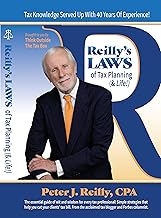Originally Published on forbes.com on February 21st, 2012
______________________________________
William Thornton has graciously agreed to do a guest post on the clergy housing allowance. Reverend Thornton blogs on issues related to his denomination under the title SBC Plodder.
When the housing allowance makes news, it is likely as a result of another lawsuit being filed against it or because of some prominent member of the clergy using the provision to shelter hundreds of thousands of their ministerial income on an opulent home or homes. Rarely newsworthy is the common, routine, and proper use of the allowance by tens of thousands of clergy for whom it is of such modest benefit that few non-clergy would object.
As a Southern Baptist pastor, I have benefited from the ministerial housing allowance and am fond of this particular expression of our tax policy. I have also been disgusted at the use of the housing allowance by a few highly paid clergy to shelter huge sums of income on fabulous primary homes and even second homes, though I understand that the latter has been suspended by a recent court decision.
I cannot make a sensible case for the average taxpayer paying taxes on his income without any exclusion for his modest home while wealthy clergy live in mansions valued in the millions and are able to exclude hundreds of thousands of dollars from income taxes under the housing allowance.
When Jesus said that in His Father’s house there were many mansions, I do not believe He had in mind a mansion of the type that wealthy clergy like ordained trumpeter Phil Driscoll and television evangelist Kenneth Copeland use to shelter income through the minister’s housing allowance. I also would speculate that Jesus would look askance at requiring others to underwrite part of the cost of such homes through tax policy.
But before we bury the allowance with a shrill trumpet blast from Rev. Driscoll or with haughty disgust over Elmer Gantry-type of religious racketeers, I would note that the average senior pastor in my own Southern Baptist Convention earns a salary of under $60,000. That pastor may live in a modest home provided by the congregation and almost certainly has no second home. Tens of thousands of these clergy appreciate the very modest tax benefit provided by the housing allowance.
I recognize that some object to the housing allowance on the basis of what they view as the illegitimacy of some members of the clergy whose ordination is viewed with suspicion. I grant that there are individual cases where it may be difficult to discern an ordained individual’s ministerial function and role but, again, only the most miniscule fraction of clergy would cause this question to be raised and I am wary of the government making determinations of legitimacy or illegitimacy of clergy. I have never known of a Southern Baptist minister who was ordained solely for the purpose of being eligible to shelter income through the housing allowance.
When our legislators or judiciary are asked to revisit the issue of the housing allowance, and there are some prickly issues involved in it, my hope is that they are not blinded by the tiniest fraction of recipients who raise the ire of us all so that they cannot see the vast bulk of people for whom it is beneficial.
—————————————————–
My own view of the housing allowance is very similar to Reverned Thornton’s and comes out of a similar environment from time spent as the most tax literate member of a congregation’s governing board. I will note that I believe that a minister who is required as a condition of employment to live in a house provided by his congregation should be covered by Section 119, the convenience of the employer section. Ironically, in the sixties and seventies some parishes gave up their parsonages because it was unfair to the clergy who were losing out on the automatic accretion in wealth that came from home ownership. Those were the days.
You can follow me on twitter @peterreillycpa.































































































